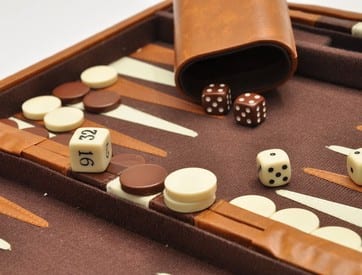
WHAT do you need to do to turbo-charge your grades? Perhaps you or your children want to jump from a D to an A* or an E to a B? What better way to find out than to ask students who’ve done just this what advice they have for others? Here’s five of their secrets, with examples from real student blogs posted online.
- They think about their strengths and weaknesses
Teachers spend a lot of time marking and providing comments – good students use them. They contain really important advice about improving work.
And when their work is below their target grade these students find out why and repeat the work or make sure the next piece doesn’t have the same faults.
“I have spoken to my teachers and the same issue keeps cropping up: applying my knowledge in an analytical way. I also tend to panic and have a mind block in exams and this tends to have an impact as I go off topic in the exams.”
- They have a plan
 The best students have a plan and stick to it. They recognise that time needs to be put aside for study and divided sensibly between subjects and topics.
The best students have a plan and stick to it. They recognise that time needs to be put aside for study and divided sensibly between subjects and topics.
The plan is usually some form of calendar where work is listed and allocated to different times. They may create this manually or use a web based study planner.
But the plans are flexible – they should always allow for change.
“Creating a revision timetable helps a lot. It is a great way to organise your study time and boosts your motivation towards each subject.”
“I make my study planner using web based tools, you guys should use it as it makes your studying more organised. I print mine off every Monday morning so I have a plan set for the whole week.”
- They use past papers and mark schemes
 No one would take a take a driving test without practising driving a car and no one is likely to be successful in exams without practising some questions from past papers.
No one would take a take a driving test without practising driving a car and no one is likely to be successful in exams without practising some questions from past papers.
Mark schemes for most papers are also available. These are written in examiner language but they do show how examiners mark work and the skills and knowledge they’re looking for.
The best students use mark schemes and past papers to identify their strong and weak areas, focusing their attention on improving their weaknesses.
The blog extract below is a great example of using past papers and mark schemes
“1. Complete exam papers and mark using the mark scheme. Did I get an A? If yes, go to step 2, if not, read over notes.
- Identify weak areas from mark scheme. Note how questions are marked for that part of the specification.
- Read over weak areas, do practice questions.
- Complete exam papers and check improvement.
- Have any weak areas persisted? If yes, go back to step 1, if not, go on to another area.”
4. They know how to make (really) useful notes
What’s the point of notes? Students keep making them and teachers keep expecting them but they are pretty useless without a clear idea of their purpose.
Just copying isn’t usually very helpful, nor is highlighting – more of a comfort blanket than a method of learning.
Top students personalise their notes by annotating, using colours and being careful about headings and subheadings, always filing them away carefully.
Good notes have double value: you learn from making them and then you learn more by reviewing them as the exams approach, maybe creating flashcards or sets of questions from them.
“Re-read Biology notes, make sure I have got all the important information, complete Physics notes and annotate.
– Re-read and annotate Chemistry notes.
– Practise Romeo and Juliet lines for English the next day.
– Pack my backpack with all the things I need such as my Biology notes, which I will look through again and do summary questions.”
- They’re flexible
 Different subjects need different kinds of knowledge and skills. The content is different and exam papers, coursework and assessment vary. There is no one way of working that will suit every course and every subject.
Different subjects need different kinds of knowledge and skills. The content is different and exam papers, coursework and assessment vary. There is no one way of working that will suit every course and every subject.
At the same time people learn in different ways. Some like to make notes of their notes then make flashcards while others prefer big, colourful mindmaps.
The best students know how they work best but are able to adapt their working methods to suit different subjects and assessment methods. They use different approaches in maths and History for example.
“I use different methods of revising. Mostly, I just read what I’m trying to remember and memorise it. In Maths I answer questions on what I’ve just learnt, as memorising won’t help.
Practising hard, by revising past papers also helps as I get used to the style of questions.
I also like to collaborate – helping others will always help you in some way. This is because no one is flawless, everyone has weak areas that other people have as strengths. Usually, I help people in Maths and they help me back with English.
Also, taking study breaks helps me as constant revision makes me forget what I just revised – my brain just can’t take all that information.”





